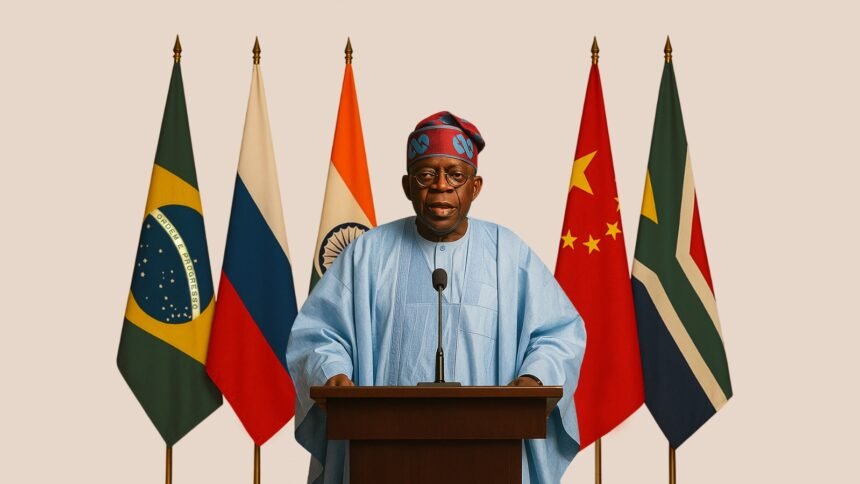At the recent BRICS summit, held under the shadow of rising global polarisation and economic fragmentation, Nigerian President Bola Ahmed Tinubu made a declaration that could echo across diplomatic halls for months to come. In front of a gathering of nations that view themselves as the “alternative voice” to Western dominance, Tinubu boldly called for a total overhaul of the current global governance structure, criticizing it as outdated, unjust, and stifling for nations like his.
It was an unusually spirited intervention for a leader who is often seen as more economically than ideologically driven. Yet Tinubu’s speech was laden with the type of sharp phrasing that signals a shift in posture: “The institutions that claim to govern the world are governing no one but themselves,” he said. “They are governed by interests, not principles.”
His appeal joined a growing chorus in the Global South that views the current world order—shaped largely in the aftermath of World War II and institutionalized through the United Nations, World Bank, IMF, and World Trade Organization—as obsolete and increasingly biased toward the interests of a few.
For Nigeria, a country whose economy is Africa’s largest but whose global influence has never quite matched its size, this is an opportunity to reposition itself. Tinubu’s administration sees BRICS not just as a trading bloc but as an emerging political force, one that is making room for countries that have traditionally been on the periphery of decision-making.
What makes this push even more symbolic is the fact that Nigeria only recently joined BRICS as a “partner nation,” a status that doesn’t yet confer full membership but opens the door to eventual inclusion. For Tinubu, the summit was less about rubber-stamping declarations and more about signaling intent: Nigeria isn’t just here to listen—it’s here to lead.
But let’s not pretend this is a clean break from the West. Nigeria remains deeply embedded in Western financial networks, from the debt markets to trade and military partnerships. And while Tinubu railed against global structures that “serve the powerful,” Nigeria continues to court investment from G7 economies, host multinational corporations, and cooperate with US-led counterterrorism initiatives.
So, is this just posturing?
Not entirely. There is genuine frustration in Abuja—and many other African capitals—that the global decision-making framework doesn’t reflect demographic or economic realities. Africa, with 54 countries and 1.5 billion people, still holds just three non-permanent seats on the UN Security Council, none of which are permanent or veto-wielding. The continent’s voice at the World Bank and IMF remains marginal, and reforms promised for decades have remained stalled or symbolic.
Tinubu is tapping into this grievance. But he’s also trying to walk a tightrope. He knows Nigeria must remain credible in both Western and Eastern circles, especially as its economy reels from currency devaluation, inflation, and energy shortages. Nigeria is not China, nor is it trying to be Russia. It doesn’t want to burn bridges; it wants to build new ones. And BRICS, with its more decentralized ethos, is offering the blueprint.
Still, questions remain: Will Nigeria’s flirtation with the BRICS movement deepen into something more institutional? Could it lead to a shift in trade and security alliances, especially if the US moves closer to sanctioning Nigeria’s BRICS allies like South Africa? And crucially, does Tinubu have the political capital at home to sustain this global gambit when he faces economic discontent and growing opposition?
If anything, Tinubu’s BRICS moment shows that Africa is no longer content to be courted by global powers in silence. It’s speaking up—and perhaps, slowly, forcing the world to listen.










